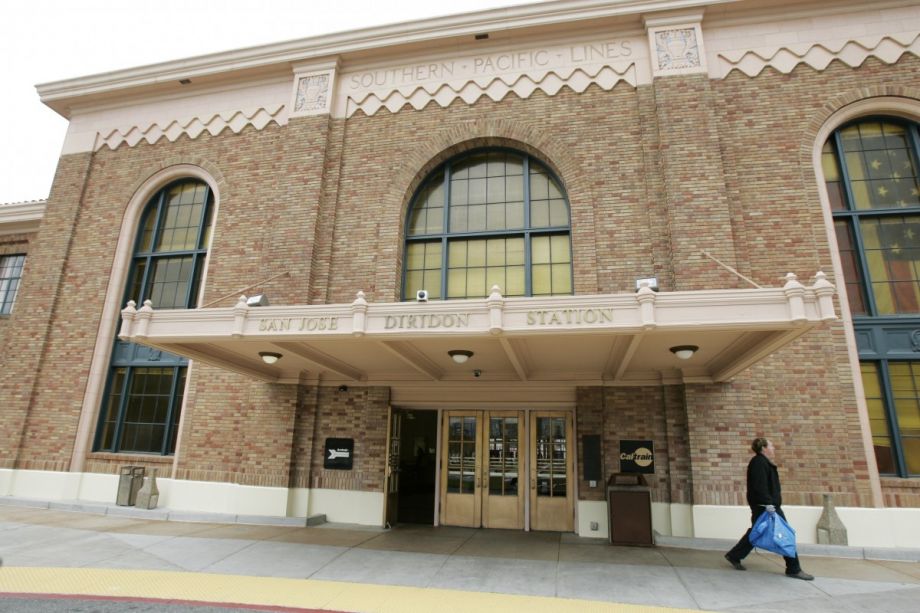When Amazon announced earlier this month that it had selected Long Island City in New York and Crystal City in Arlington, Virginia, as the two new locations for its east coast headquarters, it brought to an end more than a year of conjecture about what kinds of amenities the tech giant would prioritize in a new host city. Even as the HQ2 bonanza fades, though, the era of the tech industry mega-development is still very much upon us.
Next week, in San Jose, the city council is expected to vote on the sale of public land to Google, the first in a series of approvals needed for a proposed development that could transform the area around Diridon Station, a central transit hub in the heart of the largest city in Silicon Valley. But where the Amazon deal was notable for the massive tax incentives the company secured largely in secret from its new host cities — and the even-more-lavish promises from dozens of runners-up — San Jose is hoping for a different dynamic.
“Through the Diridon Station Area Process, San José and Google have provided a model that stands in stark contrast to the process followed by Amazon and other corporations who have sought large subsidies and presents a better model for the relationship between cities and tech employers,” said Mayor Sam Liccardo in a press release announcing a preliminary agreement with Google earlier this month. “We won’t use our taxpayers’ dollars as bait. Instead, we’re working together with the community and Google to develop a mutually beneficial path that delivers far better value to the residents we serve.”
In announcing a memorandum of understanding with Google, Liccardo and other members of the city council said they would push for a negotiated community benefits agreement, a downtown financing district to help fund transit amenities and other public-realm improvements, and a policy requiring that 25 percent of all new housing in the area be leased at reduced rates. The final package of community benefits will be negotiated after the land sale is approved and before the city approves zoning and other changes to move the project forward.
For Silicon Valley Rising, which has been leading a campaign to make sure the Google development produces opportunities for community residents rather than gentrification and displacement, the announcement of the MOU is a good sign. But the real substance of the agreement remains to be seen.
“What I’m happy about is that we’ve spent the last 18 months trying to get the city and Google to talk about benefits, and it looks like this is finally happening,” says Maria Noel Fernandez, the deputy director of Working Partnerships USA, which coordinates the Silicon Valley Rising campaign. “It’s a step in the right direction in terms of what they put out, but we still don’t know the details.”
In the weeks before the mayor announced the MOU with Google, Fernandez’s group and another nonprofit sued the city over what they claimed were improperly secret negotiations between city officials and Google over the details of the deal, according to reports. In addition to affordable housing, Silicon Valley Rising wants the agreement to include assurances for a public community benefits agreement process, tenant protections, and investments in transit infrastructure and public schools.
Mayor Liccardo was not available for an interview. Vice Mayor Magdalena Carrasco did not respond to messages.
Jenny Schuetz, a David M. Rubenstein Fellow in the Metropolitan Policy Program at the Brookings Institution, notes that the dynamic between large companies and cities is much different when the company is already established in a location versus when it’s shopping around for a new home. In Amazon’s case, for instance, the company’s home city of Seattle has increasingly sought ways to extract public benefits from the company, which has contributed substantially to its economic growth and accompanying shortage of affordable housing, Schuetz says. That trend may have contributed to the company’s desire to find a new city to host its expanding operations, she says.
But in the case of San Jose, where Google has already committed to building (its headquarters are in nearby Mountain View), the dynamic is different.
“For a company that has its headquarters in a city and has been there a while, it’s really traumatic for them to pick up and move, which is the point when cities can extract things,” Schuetz says.
For Schuetz, who argued in a recent New York Times op-ed that New York should prepare for the new Amazon development by investing in housing, schools, and transit, the best ways to get public benefits out of private development is through broad-based taxes. Ideally, cities will “decide what level of service they want to provide to their residents” ahead of time, and create taxes and policies that provide for those services, rather than singling out one company or industry. But they also need to account for the impact of major new tech developments in ways that prevent existing residents from being displaced, she says.
“I think [cities] are right to ask large employers that pay their workers high salaries to contribute to the communities that they live in,” Schuetz says. “They do create demand for services.”
In California, where cities have limited authority to raise property taxes and the housing market is historically tight, governments have been turning to ballot referenda to find ways to house more people. San Jose recently pushed a record-high bond initiative to pay for more affordable housing, but it failed at the ballot box earlier this month. Without an influx of public money to address the housing crisis, city officials are hopeful that a negotiated deal with Google can at least prevent the worst potential impacts of tech-industry development.
“Tech companies should be viewed neither as our saviors nor our supplicants,” Liccardo said earlier this month, when announcing the MOU with Google. “Rather, we have an opportunity to show another way – for a civic partnership that builds a more prosperous, equitable, and sustainable San José.”

Jared Brey is Next City's housing correspondent, based in Philadelphia. He is a former staff writer at Philadelphia magazine and PlanPhilly, and his work has appeared in Columbia Journalism Review, Landscape Architecture Magazine, U.S. News & World Report, Philadelphia Weekly, and other publications.
Follow Jared .(JavaScript must be enabled to view this email address)











